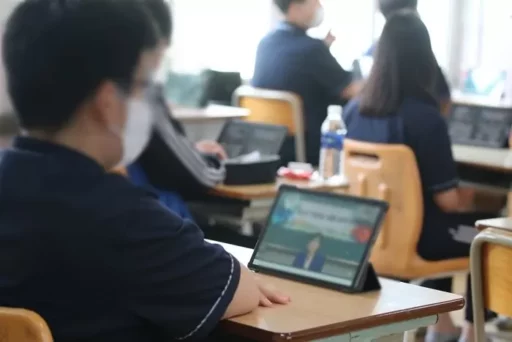Youth and Human Rights Organizations Protest "Restrictions on Smart Devices as Human Rights Violations"
As the movement to restrict the use of smart devices in schools grows nationwide, students are taking matters into their own hands. Instead of urging adults to implement protective measures, they are raising their voices directly.
On the 20th, a coalition of youth and human rights organizations known as the "National Action for Student Rights and Youth Rights" called for the halt of amendments to the Primary and Secondary Education Act. They raised concerns over provisions that limit students' use of smart devices during classes.

At a press conference held at the National Assembly, the coalition argued, "This seriously threatens students' freedoms and rights," and warned that if codified into law, it would encourage excessive human rights violations in schools. They emphasized the need for further discussion.
Decision by Human Rights Commission Reversed… Likely to Pass in the Plenary Session
The current amendment is based on the National Human Rights Commission's decision in October of last year, which stated that "collecting mobile phones in schools is not a human rights violation." The education committee cited this as a reason to promote the legislation, claiming that "there is a need to resolve social conflicts."
This was a reversal of the commission’s stance, which had previously deemed all approximately 300 complaints related to the collection of students' mobile phones as human rights violations since 2014. The amendment passed through the education committee after a bipartisan agreement on July 8 and is highly likely to be approved in the plenary session on the 22nd.
The bill generally prohibits the use of mobile phones and other smart devices during student classes but allows for their use in educational purposes, emergency situations, and special education aids.

Reactions from Educators are Divided… Concerns about Confusion on the Ground
Responses among educator organizations are mixed.
Some evaluated the measure, stating, "It cannot be viewed as an unconditional control, but rather as a law that meets the needs of the times," while others pointed out that "since each school is already setting standards for the use of smart devices in their regulations, implementing a uniform standard may only escalate confusion on the ground."
The coalition emphasized that "defining the use of smart devices as an 'harmful act' in a blanket manner is disrespectful of students as civic subjects," and they plan to take action to prevent the legislation.
Image sources: Reference photos for understanding the article / News1, AI-generated images for article comprehension / Bing Image Creator


